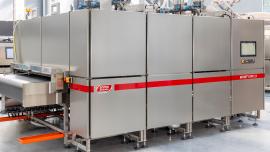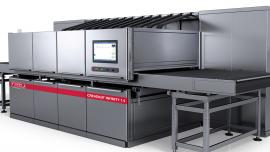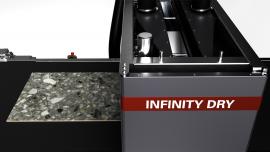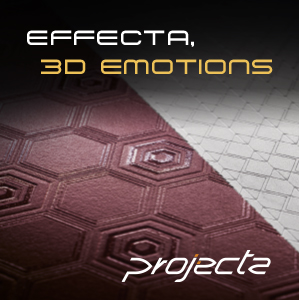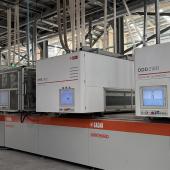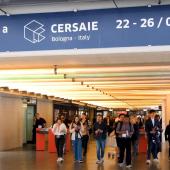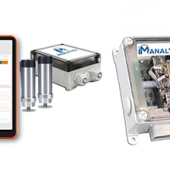Sustainable digitalisation according to System Ceramics
System Ceramics is accelerating the adoption of increasingly sustainable smart factory solutions and continuing its sustainability programme aimed at reducing emissions and water and energy consumption
From sensors and IoT to Big data, from automation to artificial intelligence, digital technologies are revolutionising factories and giving companies a real competitive advantage. However, to ensure that these benefits are long-lasting, it is essential to focus at the same time on the sustainability of processes.
In keeping with Coesia’s green strategy, since 2022 System Ceramics has been accelerating the adoption of smart factory solutions and has made a significant contribution to the ceramic sector by researching and developing technologies capable of making it not only increasingly digitalised, but also more sustainable throughout the entire production process, from pressing through to decoration, inspection and packaging.
Examples include the Superfast ceramic press, which offers energy savings of 70%; Creadigit Infinity, the digital decoration technology that uses water-based inks to improve the working environment and reduce emissions; Digiglaze, the digital glazing machine that reduces consumption and waste by up to 30% and eliminates 90% of the water needed for its maintenance. Other new technologies are the Genesis project for sustainably reproducing marble and natural stone, and Hypermate, the Industry 4.0 management software that optimises the production flow and improves the company’s overall efficiency.
Thanks to this approach, the company has been able to strengthen longstanding partnerships with key players in the global ceramic industry, including ABK, Porcelanosa, Portobello, and Kale Group.
In 2023, System Ceramics also achieved excellent results in terms of the environmental impact of its operations. Today, 30% of the energy used in its factories is self-generated by means of photovoltaic systems (the goal is to reach 80%) and the conversion to LED lighting has saved as much as 500 MWh per year. In addition, the water-saving programme has resulted in a 75% reduction in water consumption compared to 2022, with more than 7,520 kg recycled and returned to the plants.
Suppliers are also chosen according to the same criteria. System Ceramics predominantly chooses local and certified companies, thereby giving customers the opportunity to improve their own sustainability profile.
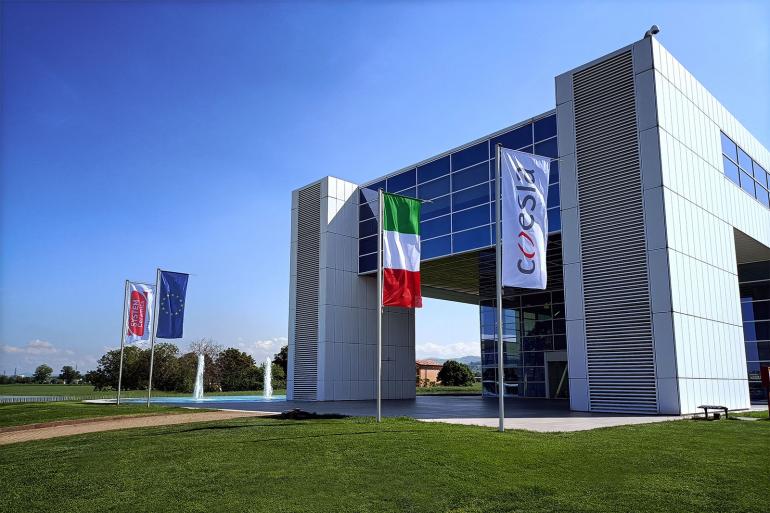
Did you find this article useful?
Join the CWW community to receive the most important news from the global ceramic industry every two weeks







